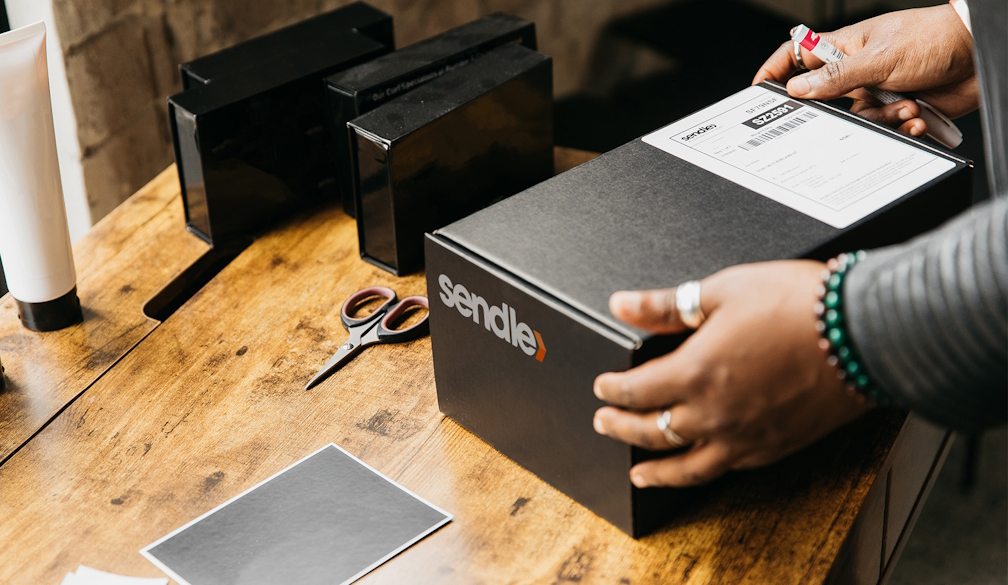Two-thirds of small businesses looking overseas for revenue growth

International shoppers offers economic lifeline for SMBs as cost of living bites consumers at home, Sendle’s Small Business Survey reveals
A new survey from Sendle, Australia’s courier service for small businesses, reveals Australian small businesses are expecting a big portion of their revenue growth to come from overseas in the next 12 months, amid high interest rates and inflation.
Almost two thirds (65%) of small business owners are expecting up to a quarter of their total revenue growth to come from international markets this year. Australia’s uncertain economic outlook appears to be factoring into small business decision making, with 61% reporting that inflation has had a significant impact on their business more than they expected.
“As cost of living bites consumers at home, we’re seeing growing demand from small businesses to expand their reach in markets like the US,”said Laura Hill, Managing Director of Sendle Australia. “The data shows that attracting new customers continues to be the top challenge for small businesses, so diversifying their customer base across different markets is a sound strategy to weather any economic downturn and future proof their business in the longer term.”
Small businesses modifying their business strategies for new markets
Despite the economic environment, almost half (48%) of small businesses are forecasting growth of up to 25% in FY25, compared to 23% of small businesses in 2024. This business optimism could be due to the opportunities for growth overseas, with four in five (80%) of small businesses reporting an increase in revenue growth from international markets in the past six months.
To attract customers in new markets, social media will be a top driver of growth, with a quarter (25%) of small businesses planning to grow their social media presence and engagement. In fact, small businesses are more likely to invest in social media and marketing campaigns than they are to change their pricing strategy or negotiate with third-party suppliers for business growth.
Planning for peak not yet a priority for most small businesses
When thinking about the upcoming peak sales season, 44% of small businesses are worried about slowing customer demand due to cost of living pressures. However, the survey reveals that many small businesses could be leaving peak planning too little too late, with the majority of small businesses (59%) saying they’ll plan for peak season only 1-2 months out.
“Australian shoppers are increasingly bringing forward their Christmas shopping to October and November to take advantage of key sales events,” said Hill. “Our advice to small businesses is the earlier you can plan for peak, the better. Start looking at your sales, marketing and shipping strategies now to ensure you’re in a position to capitalise on consumer demand later.”
In addition to enticing consumers with free shipping, with over half (58%) of small businesses planning to offer free shipping this year, with the favoured option of $100 AOV, some small businesses are looking for ways to make their business more green. Almost a quarter (24%) of small businesses say sustainability is a high priority, while 82% of small businesses plan to roll out sustainable packaging in the next 6 months.
Renewed calls for delivery options and infrastructure sharing among carriers
Over half (53%) of small businesses are using multiple couriers to get the best price. Access to shipping services in and out of regional and rural areas continues to be a bugbear for small businesses, with over half (55%) of small businesses wanting to see more ecommerce parcel delivery options / access to regional and rural Australia to help small businesses.
Infrastructure sharing with lower cost carriers (51%), regulation to drive down prices (44%) and improved competition (44%) are next on the wishlist for small businesses, when it comes to actions they want to see to improve the postal and parcel industry in Australia. The survey echoes findings from a 2024 survey of 600 retailers across rural and remote areas by Roy Morgan that found 61% of retailers were of the view that “challenges and constraints with currently available delivery services to these areas was negatively impacting their business”.
“When there is no choice, small businesses suffer,” said Laura. “The monopoly that Australia Post has over Independent Community Licensed Post Offices (LPOs) in regional and rural areas effectively locks out other competition and contributes to higher shipping prices and fewer options. That’s why Sendle is calling on Australia Post to open up its taxpayer-funded last mile infrastructure to other carriers to provide more delivery options for regional and rural Australia.”
Report methodology
Sendle conducted a market research survey of business leaders responsible for setting strategy, defining go-to-market approaches and outlining key objectives for the business/function who are using Sendle as a service. Total sample size was 376 submissions across Australia. Fieldwork was undertaken in May 2024. The survey was carried out online.
For more information about Sendle’s mid-year Small Business Survey, please visit: https://try.sendle.com/
About Sendle
Sendle is the first shipping carrier specifically designed to serve the needs of small eCommerce businesses. Sendle levels the playing field for small businesses by offering affordable, flat-rate shipping, with no hidden fees, subscriptions, or warehousing required. Merchants simply purchase a label and schedule a pickup from Sendle, and their package is picked up from their front door. Sendle is the first 100% carbon neutral shipping carrier in Australia, the US, and Canada, and a Certified B Corporation. The company was launched in Australia in 2014 and has headquarters in Sydney, Australia, Seattle, Washington, and Toronto, Canada.







